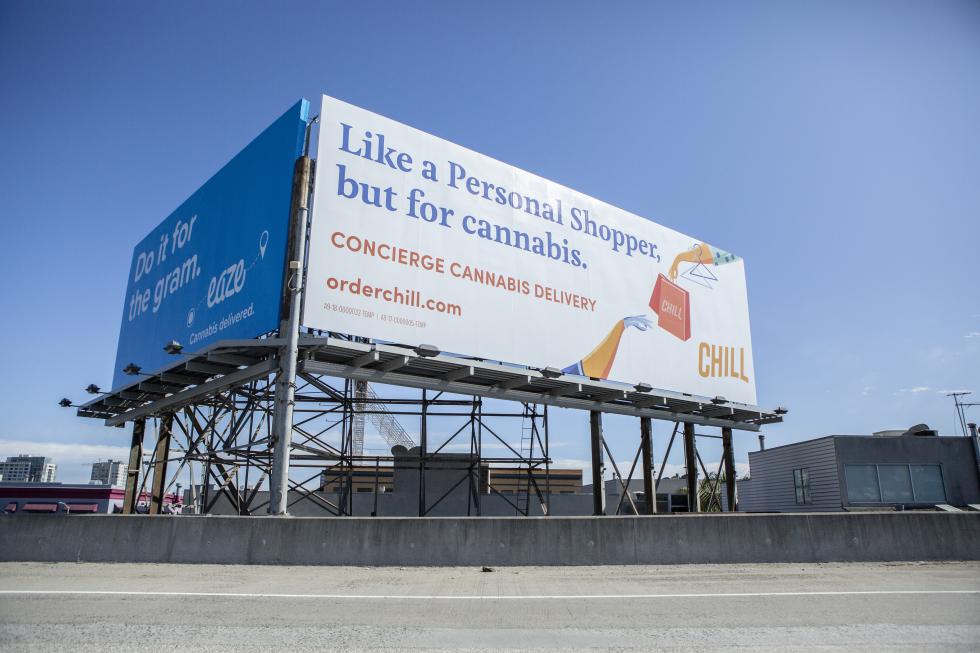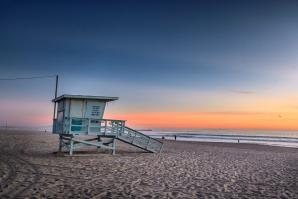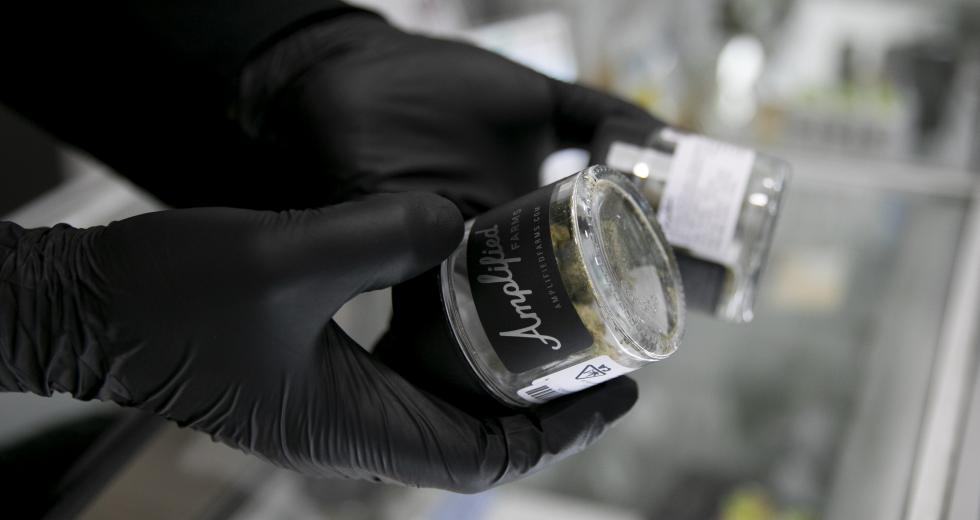There may be a coronavirus pandemic, but California is making it easier than ever for housebound and anxious residents to get buzzed.
In a series of new orders and regulations, state authorities have eased restrictions on cannabis dispensaries and on restaurants in the booze business to help them weather the financial impact of shelter-in-place orders. Pot shops in particular have been classified as essential, allowed to remain open during the shutdown, having made the cut alongside rural health clinics, hospice workers and blood banks.
Click here for more coronavirus coverage
State regulators want to ensure that social-distancing orders are followed while keeping some especially vulnerable businesses from collapsing during what is likely to be the worst economic crisis at least since the Great Recession. An additional concern: that cooped up and panicked Californians may be particularly prone to substance abuse during the crisis.
Gov. Gavin Newsom, who as lieutenant governor campaigned for legalization, and other state authorities have sunk significant political capital into seeing that California’s experiment with cannabis legitimacy doesn’t fail. The pandemic is likely to buffet an industry that those in the business say was already struggling under restrictive conditions, high taxes and a still-ubiquitous black market.
Since the beginning of the public health emergency, pot shops have been granted waivers allowing customers to purchase weed from their cars or to have the product brought to their homes without a signature (which is ordinarily required), thus keeping customer and delivery person appropriately apart. Instead, customers can text a photo of their identification to the dispensary.
Pamela Epstein, general counsel for Eden Enterprises, which operates a dispensary in unincorporated Alameda County, said she applied for a waiver to allow customers to call ahead and pick up an order without entering the shop.
“I submitted the application over a weekend and had it by the end of the day Monday,” she said.
She said she appreciated the governor’s classification of her industry as essential. “If you were to cut off legal, safe, compliant access right now, you would be driving consumers to illegal access,” she said.
At first glance, cannabis vendors wouldn’t seem to be in any trouble. Outlets across the state have reported long lines outside dispensaries as coronavirus concerns have ramped up.
Epstein said her sales have been up 150% across the board — a surge in both customers and the size of each purchase.
But such increases may be a temporary bump, said Jerred Kiloh, president of the United Cannabis Business Association. He’s also the owner of The Higher Path dispensary in Sherman Oaks, where sales are now conducted through car windows, with money and product passed in a basket.
“People stockpiled just like they did toilet paper,” he said. On the day when Los Angeles Mayor Eric Garcetti declared a shelter-in-place order, Kiloh said he saw a 400% increase in sales — his biggest sales day ever. But after cannabis was declared an essential business Friday, customers no longer felt compelled to stock up, he said. On Sunday, he had his slowest sales day ever.
“We’re in a roller coaster,” he said.
Billboards advertising cannabis-delivery services in San
Francisco last year. (Photo by Anne Wernikoff for CalMatters)

And despite the recent surge in demand, the state’s cannabis industry is particularly ill equipped to survive a prolonged economic downturn, said Josh Drayton, spokesperson for the California Cannabis Industry Association. While other small businesses are turning to federal disaster loans or other emergency credit, cannabis is still illegal under federal law.
“We don’t expect any of the (federal) relief that is being made available to businesses to apply to the cannabis industry in California, so any relief we’re seeking is going to have to come from the state,” he said.
Alex Traverso, spokesperson for the state’s Bureau of Cannabis Control, said by email that the easing of regulations is not an across-the-board policy; each application is being considered on a case-by-case basis. But “in light of the current circumstances, we are trying to be as flexible as possible with businesses.”
Regulatory flexibility is also being extended to restaurants, which are now allowed to operate only as takeout and delivery operations.
Last weekend, California liquor regulators gave restaurants the go-ahead to sell beer, wine, mixed drinks and pure spirits to go, as long as they’re purchased alongside food. The state is also allowing restaurateurs to sell bottles of alcohol, as long as they are unopened.
More than 50,000 restaurants, brew pubs and other vendors that pair food and booze have state liquor licenses, said John Carr, spokesperson for the California Department of Alcoholic Beverage Control.
“Much of the temporary relief we are providing is to help restaurants and others in the alcoholic-beverage industry weather this crisis,” he said. “After consulting with the industry, we determined this is a way for them to continue to attract customers, keep their businesses going and keep people employed, while still emphasizing public safety.”
Alcohol is often a cash cow for restaurants, with high markups for owners and big tips for waitstaff.
Jot Condie, president of the California Restaurant Association, welcomed the regulatory change but said it wasn’t likely to make a dramatic difference for most businesses. Alcohol sales often drive up the average size of a bill not solely because of higher markups, but also because buzzed customers will stick around to socialize and eat and drink more.
“When you’re getting it delivered and maybe somebody’s ordering a pint of beer, that’s not the same as five people sitting around having two pints each,” he said. “It’s not going to drive up the (average check size) drastically. But every penny counts.”
Cole Pickett, a manager and bartender at Hollister Brewing Company, a brewpub in Goleta, near Santa Barbara, said the change of policy has been a hit with some customers.
“For them it’s like being in Vegas, like, ‘Let’s get a margarita to go!’ ” he said. “People are kind of amused by it.”
–
CalMatters.org is a nonprofit, nonpartisan media venture explaining California policies and politics.
Stay up to date on the effects of the coronavirus on people and business in the Capital Region: Subscribe to the Comstock’s newsletter today.
Recommended For You

The Herb Column: High Hopes in El Dorado County
The passage of five ballot measures in 2018 could lead to a thriving legal marijuana industry
Many local leaders and members of the commercial cannabis community are still optimistic about the November 2018 passage of five ballot measures in El Dorado County that lay the groundwork for a fully legalized and regulated cannabis industry.

California Closes Parking Lots at Beaches and Parks to Stem Spread of Coronavirus
Following a sunny weekend when Californians flocked to beaches and hiking trails despite a government order to stay home, Gov. Gavin Newsom announced Monday a “soft closure” of state parks to curb the spread of coronavirus.



